Research Team Proves Effectiveness of Horseback Riding For Treatment of Cerebral Palsy
November 4, 2021 Comments Off on Research Team Proves Effectiveness of Horseback Riding For Treatment of Cerebral Palsy
Most infants with cerebral palsy are spastic, and their posture is unnatural due to abnormal muscle tension, and basic activities such as walking and balance are difficult. Recently, the effectiveness of rehabilitation treatment riding horses has been gradually recognized, but the specific mechanism has not been understood.
Continue reading …New Online Medication Report Form For AQHA
October 31, 2021 Comments Off on New Online Medication Report Form For AQHA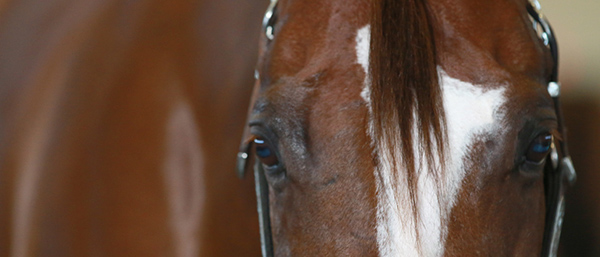
The American Quarter Horse Association is proud to announce that exhibitors can now file a Medication Report Form online beginning at the 2021 Farnam AQHA World Championship Show and AQHA Select World Championship Show, presented by Adequan® (polysulfated glycosaminoglycan); Adequan® Level 2 Championships; and Nutrena Level 1 Championships. The show is slated for October 28 – November 20 at the OKC Fairgrounds in Oklahoma City.
Continue reading …Review AQHA Guidelines For Drugs and Medications Prior to AQHA World Show
October 27, 2021 Comments Off on Review AQHA Guidelines For Drugs and Medications Prior to AQHA World Show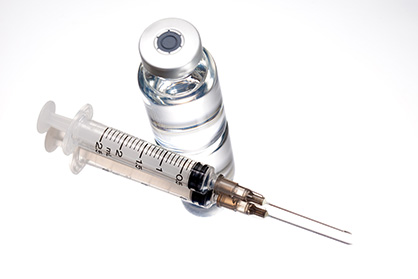
The American Quarter Horse Association releases the AQHA Guidelines and Rules for Drugs and Medications annually. This educational resource is available online to serve as an addition to AQHA’s official medications rules set forth in the violations section of the AQHA Official Handbook of Rules and Regulations.
Continue reading …Upcoming Veterinary CE Webinars- Research on Nutrition and Management of Aging, Laminitic, and Obese Horses
September 27, 2021 Comments Off on Upcoming Veterinary CE Webinars- Research on Nutrition and Management of Aging, Laminitic, and Obese Horses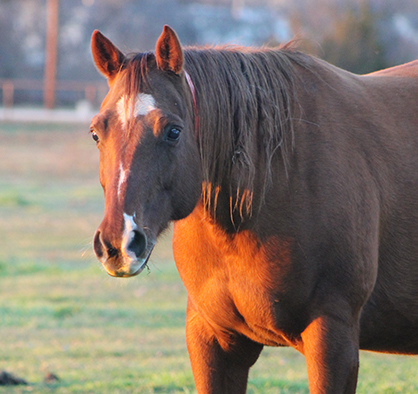
The virtual series, open to all veterinarians and veterinary technicians, will take place on three consecutive Saturday mornings from 10:00am-12:00pm EST on Oct. 30, Nov. 6 and Nov. 13. Topics will include Obesity, Laminitis and the Senior Horse covering relevant research and providing up to date nutritional advice, as well as current guidance on diagnostics. For more information and to sign up for registration information, please visit https://web.antechdiagnostics.com/equinewebinarseries.
Continue reading …What’s Your Chain Preference For Showmanship?
September 27, 2021 Comments Off on What’s Your Chain Preference For Showmanship?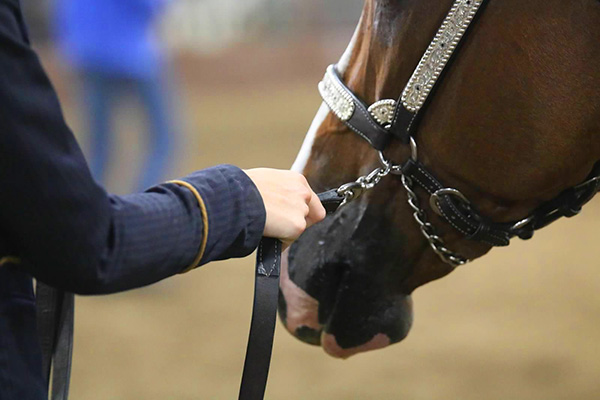
“To me, determining chain length has always been like choosing the right bit. You wouldn’t pick a bit just for style if your horse didn’t respond well to it! Find what works best for the horse and own it.”
Continue reading …From the Lab: Behavior Assessment- Understanding Stress-Related Behavior of Horses
September 25, 2021 Comments Off on From the Lab: Behavior Assessment- Understanding Stress-Related Behavior of Horses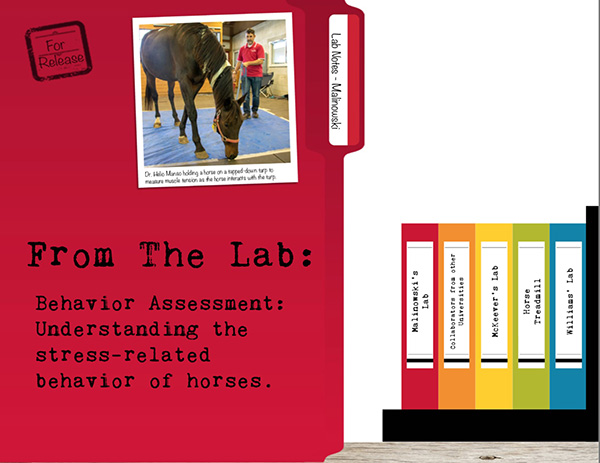
This study tested the combination of two behavior assessment methods to get a deeper understanding of stress-related behavior in horses. Quantitative assessments provide information on the number of times a horse may perform a behavior, while qualitative assessments allow an observer to describe in words the behaviors a horse is exhibiting. We placed horses in each of the four treatments: Standing control in a stall, exposure to an unfamiliar object, electric clippers near the head and neck, and isolation from companion horses in the barn.
Continue reading …American Humane Rescue Team Cares for Hundreds of Displaced Animals in Louisiana Following Hurricane Ida
September 25, 2021 Comments Off on American Humane Rescue Team Cares for Hundreds of Displaced Animals in Louisiana Following Hurricane Ida
“These southern-most parishes in Louisiana suffered the brunt of Hurricane Ida – a devastating Category 4 hurricane that caused widespread damage to homes and displaced thousands of families and their pets,” said Dr. Robin Ganzert, president and CEO of American Humane. “It is our duty to ensure innocent animals, who are tragically separated from their families, are protected and given shelter during this traumatic time.”
Continue reading …Create What You Can’t Have- Equine Inventor Cat Guenther
September 24, 2021 Comments Off on Create What You Can’t Have- Equine Inventor Cat Guenther
Cat explains that the design process of creating an invention takes the most time. “When you buy a product off the internet, or at a store, it doesn’t usually cross your mind what goes into the design formation for that item. I started drawing out the very basic ideas for WrapStar in a notebook in my room.”
Continue reading …Today’s Webinar- Using sEMG to Assess Muscular Tension and Indication of Acute Stress in Horses
September 23, 2021 Comments Off on Today’s Webinar- Using sEMG to Assess Muscular Tension and Indication of Acute Stress in Horses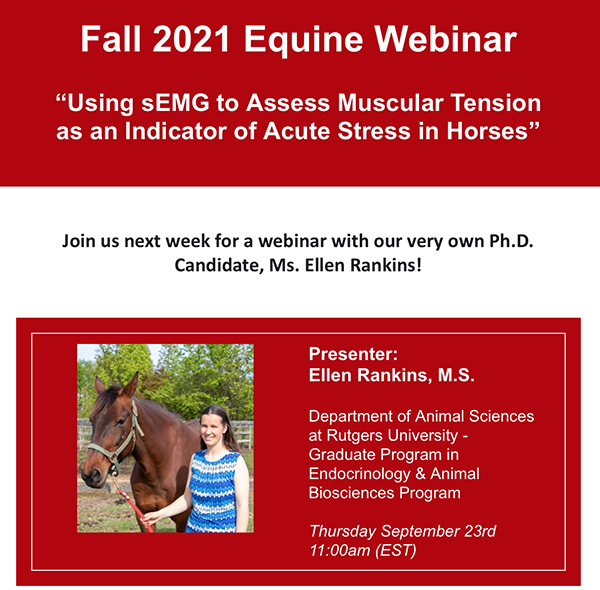
Rutgers Equine Science Center Join us TODAY for a webinar with our very own Ph.D. candidate, Ms. Ellen Rankins! Presenter: Ellen Rankins, M.S. Department of Animal Sciences at Rutgers University- Graduate Program in Endocrinology and Animal Biosciences Program. Thursday, September 23rd 11:00 AM EST Join us for a webinar with Ellen Rankins as she explores […]
Continue reading …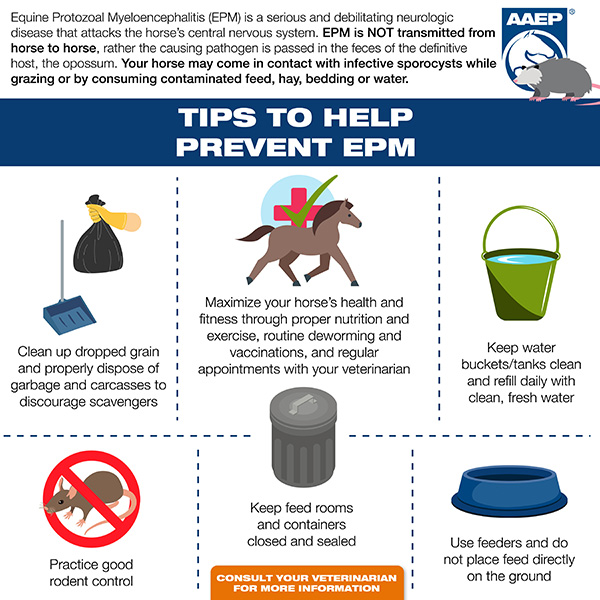
Fall is right around the corner, and research shows this season brings a higher risk of Equine protozoal myeloencephalitis (EPM). This is likely due to increased transportation to and from major horse competitions, and also to larger amounts of carrion in the diet of the opossum, the definitive host for the primary EPM-causing parasite in horses (Sarcocystis neurona.)
Continue reading …







